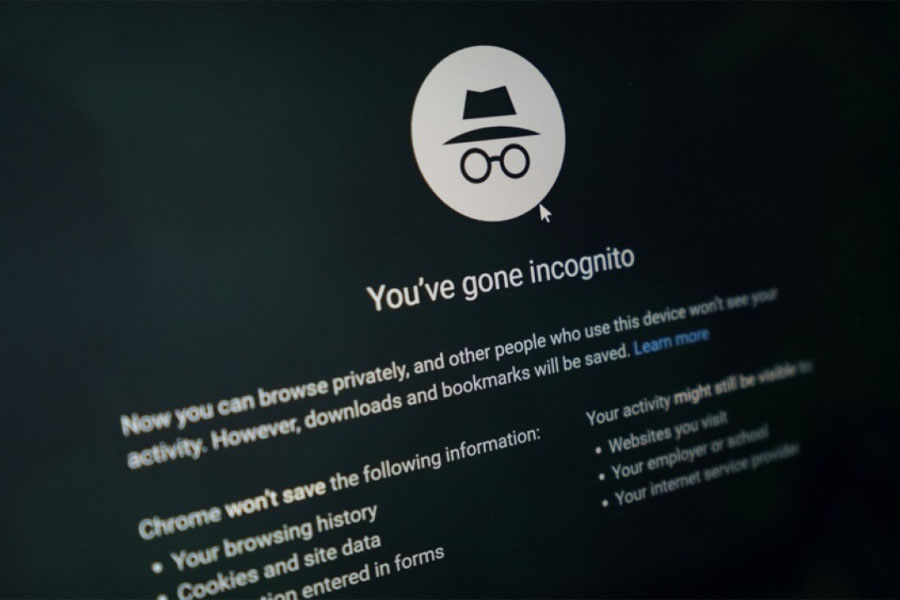
For years, Google’s Incognito mode has been promoted as a way for users to browse the internet without leaving any traces. However, Google is now facing the reality that this claim hasn’t held up. In a significant development, Google has agreed to delete or make anonymous billions of records of web browsing data collected during Incognito mode sessions, as part of a proposed class action settlement filed on Monday. In this article, let’s dive into discussing the latest Google Incognito Lawsuit saga in more detail.
Google Incognito Lawsuit Overview
What does the settlement involve?
The proposed settlement, stemming from the lawsuit Brown v. Google, aims to clarify Google’s data collection practices in Incognito mode and impose limits on future data collection. If approved by a federal judge in California, it could impact 136 million Google users. Initiated in 2020, the lawsuit was led by Google account holders alleging illegal tracking through Incognito mode.
Valued at $5 billion, the settlement’s worth is based on the data Google would delete and what it couldn’t gather. Google must address data collected in private browsing sessions up to December 2023, ensuring any remaining data is stripped of identifiable information.

Responses to the Settlement
The plaintiffs hailed the settlement as a win for online privacy, emphasizing its role in holding Google accountable. Google’s response, however, was mixed. José Castañeda, a Google spokesperson, welcomed the resolution but clarified that no financial compensation would be provided. He assured users of Google’s commitment to privacy, stating that data from Incognito mode would be deleted and not used for personalization.
- Also, read
Google Incognito Lawsuit: Conclusion
As part of the agreement, Google must update its disclosures regarding the limitations of Incognito mode, a change already underway in Chrome. Additionally, for the next five years, users will have the option to block third-party cookies by default in Incognito mode, reducing Google’s ability to track their activities across external websites.
Despite the proposed settlement not including damages for the class, affected individuals retain the right to file claims for compensation in California state court. Already, 50 such claims have been submitted, indicating a potential increase in litigation stemming from this significant settlement.
- Meanwhile, watch our review of Galaxy A55:







![Best Gaming Laptops in Nepal Under Rs. 250,000 (रु 2.5 Lakhs) [2025] Best Gaming Laptops Under 2.5 lakhs in Nepal [Feb 2025 Update]](https://cdn.gadgetbytenepal.com/wp-content/uploads/2025/02/Best-Gaming-Laptops-Under-2.5-lakhs-in-Nepal-Feb-2025-Update.jpg)
![Best Gaming Laptops in Nepal Under Rs. 120,000 (रु 1.2 Lakhs) [2025] Best Budget Gaming Laptops Under Rs 120000 in Nepal 2025 Update](https://cdn.gadgetbytenepal.com/wp-content/uploads/2025/05/Best-Budget-Gaming-Laptops-Under-Rs-120000-in-Nepal-2024-Update.jpg)
![Best Laptops Under Rs. 80,000 in Nepal [2025] Best Laptops Under 80,000 in Nepal March 2025 Update](https://cdn.gadgetbytenepal.com/wp-content/uploads/2025/03/Best-Laptops-Under-80000-in-Nepal-March-2025-Update.jpg)
![Best Gaming Laptops in Nepal Under Rs. 200,000 (रु 2 Lakhs) [2025] Best gaming lapotp under 2 lakhs Nepal Feb 2025](https://cdn.gadgetbytenepal.com/wp-content/uploads/2025/01/Best-Gaming-Laptops-Under-2-Lakh-Nepal-Feb-2025-Update.jpg)

![Best Mobile Phones Under Rs. 15,000 in Nepal [Updated 2025] Best Phones Under 15000 in Nepal 2024 Budget Smartphones Cheap Affordable](https://cdn.gadgetbytenepal.com/wp-content/uploads/2024/03/Best-Phones-Under-15000-in-Nepal-2024.jpg)
![Best Mobile Phones Under Rs. 20,000 in Nepal [Updated] Best Mobile Phones Under NPR 20000 in Nepal 2023 Updated Samsung Xiaomi Redmi POCO Realme Narzo Benco](https://cdn.gadgetbytenepal.com/wp-content/uploads/2024/01/Best-Phones-Under-20000-in-Nepal-2024.jpg)
![Best Mobile Phones Under Rs. 30,000 in Nepal [Updated 2025] Best Phones Under 30000 in Nepal](https://cdn.gadgetbytenepal.com/wp-content/uploads/2025/01/Best-Phones-Under-30000-in-Nepal.jpg)
![Best Mobile Phones Under Rs. 40,000 in Nepal [Updated 2025] Best Phones Under 40000 in Nepal 2024 Smartphones Mobile Midrange](https://cdn.gadgetbytenepal.com/wp-content/uploads/2024/02/Best-Phones-Under-40000-in-Nepal-2024.jpg)
![Best Mobile Phones Under Rs. 50,000 in Nepal [Updated 2025] Best Phones Under 50000 in Nepal](https://cdn.gadgetbytenepal.com/wp-content/uploads/2025/01/Best-Phones-Under-50000-in-Nepal.jpg)
![Best Flagship Smartphones To Buy In Nepal [Updated] Best flagship phone 2025](https://cdn.gadgetbytenepal.com/wp-content/uploads/2024/07/Best-Flagship-Phones-who-is-it-ft-1.jpg)